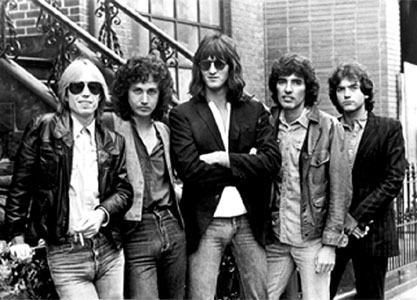
Tom Petty & The Heartbreakers
A rocker at heart. That is the way Tom Petty would go down in history. Sure, there were some diversions along a career that spans three decades and that still keeps going on strong. The first one came in 1985 with the concept album “Southern Accents”, and his first stint as a Traveling Wilbury showcased a very different side of him (the second album by the Wilburies found Petty back on more familiar territory). But these (and his solo albums like Wildflowers) can be deemed as mini-vacations after which he came energized like never before.
Born in Gainesville (Florida) in 1950, Petty’s interest in rock & roll music was instilled by two of the main icons of a whole generation, The Beatles and Elvis Presley (whom he was to met in person). After playing with a band called Mudcrutch that was to issue only a single back in the ‘70s (the band would reunite in 2008 to do a proper record), Petty launched a solo career with the assistance of two of his Mudcrutch bandmates, Mike Campbell (lead guitar) and Benmont Tench (keyboards). They were to be joined immediately by Ron Blair (bass) and Stan Lynch (drums), and that was the birth of Petty’s legendary backing unit, The Heartbreakers. Both Campbell and Tench are with Petty to this day, and Campbell in particular has had a big input on Mr. Integrity’s music both in terms of compositions (they often share writing credits) and production-wise.
Mr. Integrity. That is one of Tom Petty’s most recurrent nicknames, specially among punters. He has been known to stand against music industry abuses, and to side with fans time after time regarding decisions that would affect them like the marking up of albums. Tom’s first direct attack came with the title of his third record, “Damn The Torpedoes” (1979). It was Tom Petty & The Heartbreakers’ fist platinum album after the previous one (“You’re Gonna Get It”, 1978) had cracked the Top 40. It included the radio hits “Refugee”, “Don’t Do Me Like That” and “Here Comes My Girl”.
Continue reading
